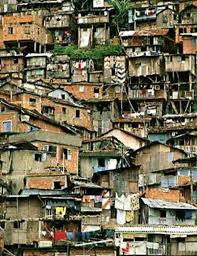Guideline for Redevelopment of Housing Societies: Anuj Puri
 By Anuj Puri, Chairman Anarock
By Anuj Puri, Chairman Anarock
In most metros such as Mumbai, redevelopment of old residential buildings is a normal and desirable occurrence. Without redevelopment, there would be no new supply in the fully developed city centres. Also, redevelopment is necessary because every building has an inbuilt shelf-life, after which it becomes unsafe, unattractive to the market and difficult to maintain.
Even now, a number of housing societies in Mumbai are contemplating the redevelopment option. However, the stakeholders of these societies often lack the information they need to make an informed call on which developer to enlist, and what guidelines they should follow before making a commitment. Here is a brief reference guide on what to look and ask for:
Check the Handover Timelines
A developer undertaking the redevelopment of a residential building can legally start the construction process only after he obtains the Commencement Certificate (CC). However, there are a host of other permissions and approvals to be obtained prior to that, together referred to as Intimation of Disapproval (IOD) approvals.
While the society members and developers mutually decide on when to vacate for facilitating the construction, it should ideally be done after the IOD has been obtained. In fact, the developer would also be more comfortable with vacating members only after the IOD has been obtained, since this would minimize his outgoings on the rentals which he would have to pay to members towards meeting their alternative accommodation costs.
Check the Reimbursement Parameters
The housing society members of a project that is to be redeveloped are entitled to monthly rental payments from the developer undertaking the project. The extent and limit for these payments must be clearly outlined in the agreement drawn up between the members and developer. Usually, it will be equivalent to the applicable rental for a similar-sized apartment in or around the same locality. The developer must also reimburse members for the cost of packers and movers and minor interior alterations in the rented accommodation they occupy during the redevelopment process, as these are also counted as expenses incurred while relocating to a new accommodation.
Clearly Define the Rental Escalation Clause
In a city like Mumbai, there have been several cases where members’ backs have been put to the wall because of poorly-framed rental clauses. It is important for the rental escalation cost to be included in the agreement between a developer and the housing society members. Typically, rentals tend to rise by 10% every year, though this can vary depending on locations, category/type of buildings and some other aspects. Society members should do their due diligence on this subject and negotiate for rental escalation terms that best fit their location and building type.
Consider Increased Maintenance Costs Post Redevelopment
The maintenance costs for a project are bound to rise after it has been redeveloped, proportionate to the additional amenities that the developer has provided. These amenities would include but are not limited to recreational facilities, garden, swimming pool, gymnasium, covered parking, air-conditioned lobby, open areas, etc. The housing society members need to calculate and assess the financial implications, keeping in mind the interests of all members. Depending upon the average financial capacity and everyone’s common interests, members should ask the developer to only provide amenities that everyone has agreed on. Often, developers offer maintenance-free periods to members, wherein the developer is willing to bear the maintenance charges which would otherwise have been borne by the society members. In the case of such an arrangement, the society should ask the developer to deposit this amount in a separate account prior to giving him permission to sell the surplus flats in the newly redeveloped building.
Ensure .g/;a Strong Delay Clause In The Agreement
The terms and conditions in the agreement between a developer and the housing society must clearly capture all the details regarding the construction time-frame. The developer should be asked to specifically mention the date by which he would be handing over the completed structure to the society members. The applicable penalties that the developer incurs if a delay occurs should also be mentioned. The penalties could be in the form of termination of contract, wherein the society members pay a pre-decided amount on a pro-rata basis according to the status of construction progress. Else, the developer may be liable to compensate the society members in cash or otherwise as a fine for delay.
To summarize, the redevelopment agreement between a housing society and a developer must incorporate maximum clarity over the roles and responsibilities of each involved party.

We the residents of Punjabi Society located at Andheri West just adjacent to Azad Nagar Metro Station are suffering since last 12 years as our Developer Mr. Kanti Savla of Integrated Spaces is trying all the tricks of the trade to delay our redevelopment. Since last 1 year we have now started to fight B. M. C. after they have served us notice under article 354 for demolition in collaboration with our builder.
We would like to have expert opinion on the above matter & would like to solve our problems if required through an arbitrator. Kindly advise us the same.